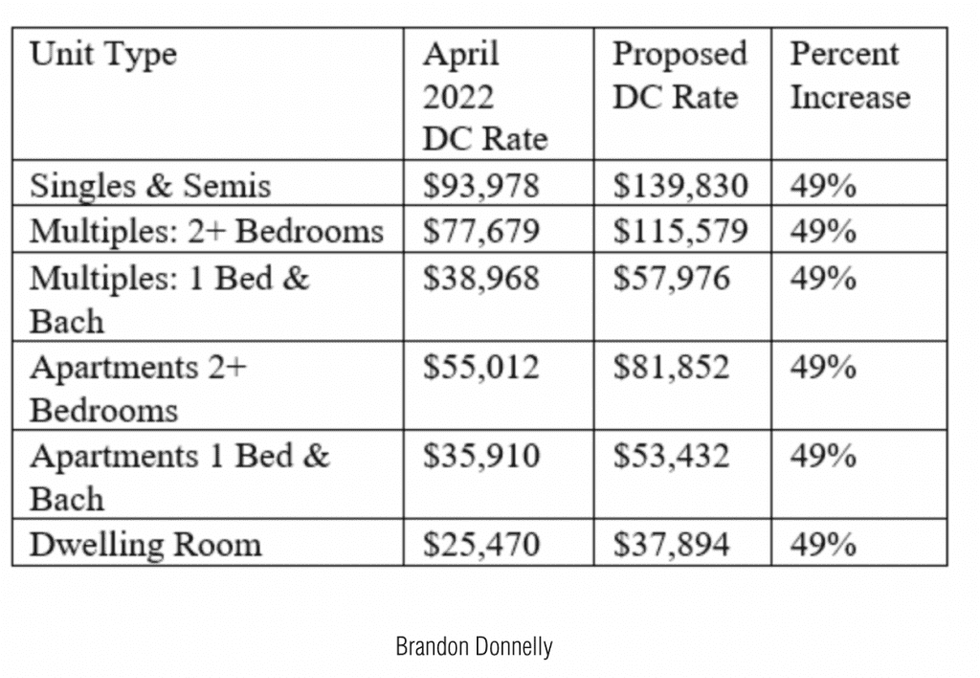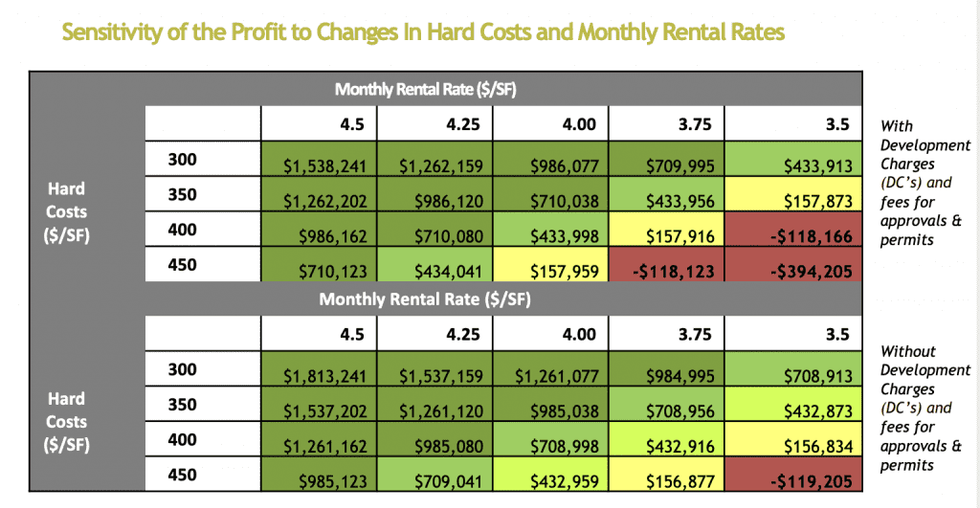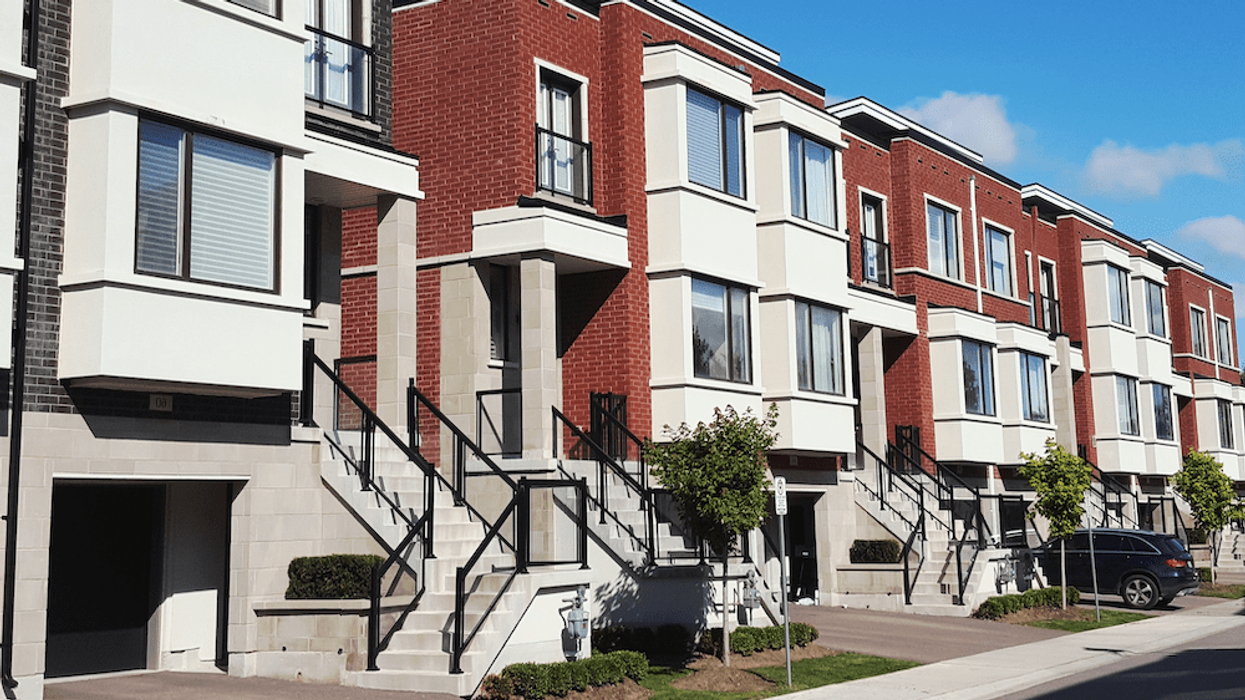Given the shortage of housing in the Greater Toronto Area, a new proposal to increase development charges (DCs) -- the levies developers must pay to support surrounding infrastructure when embarking on a new build -- by nearly 50% have housing supply advocates scratching their heads.
The hike, which is set to be formally approved by Toronto’s City Council this month, is slated to take effect in May when the existing bylaw expires. These charges are assessed on a five-year basis by a third party consultant, who determines the required new rate based on the City’s existing and planned infrastructure projects.

DCs are an important source of funding for municipalities: in Toronto, they help foot the bill for everything from sewer maintenance to the construction of the Eglinton Crosstown LRT.
However, the building industry has been sounding the alarm over the most recent increase proposal, saying it will further delay the creation of gentle density housing and drive prices even higher for the end user.
A “Multiplex Housing Financial Feasibility Exercise” prepared for the City by the Urban Land Institute (ULI) Toronto on the financial feasibility of multiplex projects in the Yellowbelt found that the added costs of DCs would “likely prevent many multiplex projects from proceeding.”
Toronto’s Yellowbelt -- a swath of land that makes up 35% of the City’s total land area and is largely zoned predominantly for single-family homes -- holds great potential for gentle housing densification via the creation of plex housing, according to ULI’s report. “These areas typically contain aging, post-war housing stock, making them highly suitable for redevelopment to address a ‘missing middle’ of more affordable housing at a scale between high-rise towers/slabs, and single, detached properties,” it states.
ULI Technical Assistance Panel, Jaegap Chung, estimates that adding even three units to just 18% of the single detached homes would add 146,064 total units, the equivalent of around 365 high rise towers.
However, the study’s calculations found that the 49% increase would translate to a charge of $115,579 per unit, adding an additional $346,737 to an overall “fourplex” project, “the cost of which would likely be borne by the Purchaser.”

The ULI report recommends that the City review existing development charges, potentially waiving or reducing them for multiplex projects, or expanding the parameters of exemptions, to make this kind of construction more financially attractive to builders and homeowners alike.
A letter penned by Toronto Region Board of Trade (TRBOT) Vice President of Public Policy Roselle Martino to the City Council’s Executive Committee champions the recommendations in the ULI report, stating that while “Growth Funding Tools” such as DCs are a necessary source of revenue for the city, the proposed development fee increase will greatly impact the cost of building new homes.
“There are many headwinds facing Toronto’s construction industry at this moment -- including rising interest rates, higher input costs and a softening real estate market,” writes Martino. “This proposed approach will allow more time for the market to stabilize and for builders, and new homeowners, to adjust to these increases.”
TRBOT supports the existing plan to phase in the Development Charge (DC) increases over a two-year timeframe, and the delay of the indexing that was originally slated to occur as early as November. They also applaud a recent City decision to delay applying the increases to buildings subject to inclusionary zoning.
As well, the board implores the City to consider exempting multiplexes of up to four units from paying DCs. “Adding gentle density to existing neighbourhoods helps make better use of existing infrastructure and does not incur the same investment costs as major new developments might,” writes Martino.
While it’s largely expected the existing DC proposal is set to come to fruition, Mayor John Tory indicated via a spokesperson to CP24 some amendments could be introduced at the next executive committee meeting that would touch on “concerns about the impact of development charges around small developments, rental construction and affordable housing efforts.”





















